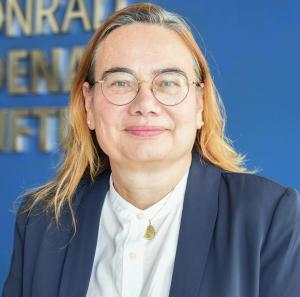The Price of Prosperity
What is economic diplomacy? And how is it acted out on the stage of Southeast Asia? Where are the consequences felt? These are some questions our authors answer in the fourth issue of the Diplomatic Briefing. This edition brings you provocative thoughts and comprehensive insights on the latest trends of economic statecraft in Southeast Asia and beyond. It includes perspectives from Cambodia, Australia, Japan, the US, the EU, Russia, China and Kenya. This issue highlights the aspect of economic diplomacy that has on one hand strengthened state-to-state relations while on the other imposed barriers in the form of rising unilateralism and protectionist policies.
We are immensely proud of this publication, especially given the increasing importance of it as a constructive platform for both Track 1 and Track 2 personnel, including policymakers, the diplomatic community, and academia alike, who jointly use it to contribute to the discussion and strategic discourse analysis generated here.
The Diplomatic Briefing has always been both a platform for renowned experts in their field, for diplomats, and as well an opportunity for promising young researchers to publish their research works. This volume contains pieces by three outstanding young writers who have passed through KAS Horizon, the flagship IR-training program by CICP and KAS for aspiring young international relations practitioners.
Click here to read on your PC (.pdf Version)
Click here to read on your Tablet (.epub Version)
ទស្សនាវដ្ដីបច្ចុប្បន្នភាពការទូតមានជាខេមរភាសា (.pdf Version)
Authors and Content

“The economic dimension of the EU-ASEAN Strategic Partnership is a rich, complex and multidimensional reality anchored in decades of dialogue and joint work that will build on the achievements of the past to tackle the challenges of the future.”
In the cover story “ASEAN-EU Strategic Partnership: The Economic Perspective”, Carmen Moreno, Head of the European Union Delegation to Cambodia, provides an insight into the already established networks between ASEAN and the EU. She also identifies fields in which relationships should be strengthened to enable further economic growth for both partners.

“Australia is playing a role as a ‘development impact maximizer’ in Cambodia, helping to achieve development objectives by leveraging resources and expertise from our regional and multilateral programs.”
Pablo Kang, Australian Ambassador to the Kingdom of Cambodia, shares several of his observations of Australia’s commitment and work in Cambodia as well as some key lessons in delivering effective development cooperation to improve the livelihoods of Cambodians.

“Japan firmly believes that the Mekong region can serve as the torchbearer for a free and open international order emphasizing the principles of the rule of law, openness, transparency, and inclusiveness, as well as constituting an economic center which brings growth to the region and beyond.”
Keiichiro Sasaki, Second Secretary at the Embassy of Japan in Cambodia, elaborates on Japan’s distinctive interest and role in shaping a free and open Mekong region, its effort to contribute to the long-term growth of Mekong countries, as well as to respect and support the region’s homegrown initiatives.


“For ASEAN, the most sensible option appears to be playing the role of a ‘balancer’ in the new regional balance of power characterized by US-China contestation, especially since the confrontation between AUKUS and China will remain a long-term strategic struggle for influence in the Indo-Pacific.”
In this chapter, Koki Shigenoi, research associate at the Asia Pacific Department of the Konrad Adenauer Foundation, and David Merkle, Desk Officer China at the Asia Pacific Department of the Konrad Adenauer Foundation, investigate the effects of US-China relations on ASEAN. They particularly highlight the role of ASEAN as a balancing factor and its potential to shape ways out of the trade-war gridlock.

“The emerging digital economy presents a viable alternative path that could foster a more feasible economic engagement between the two countries in the new normal.”
Mark Manantan, the resident Vasey fellow at Pacific Forum, looks at three critical areas –infrastructure and internet connectivity, cyber-capacity building, and data governance – through which the US can provide substantial investments to boost ASEAN’s digital innovation and competitiveness in the data-driven economy.

“The wider adoption of digital goods and services in turn enables local enterprises to communicate with businesses abroad and enter international global value chains, creating favorable circumstances for Cambodia to pursue her Economic diplomacy goals.”
Nasa Dip, a fresh International Relations graduate from Royal University of Phnom Penh, offers insights into the growth of the digital economy in Cambodia. She elaborates on the concepts of digital citizens, digital governments and digital businesses and how they can be taken further to boost the Kingdom’s economy.

“China is not only the largest investor in the Kingdom, but also the biggest financier of infrastructure development, the most important catalyst for socio-economic growth, and the greatest external influence on the evolution of Cambodia's foreign policy.”
In this chapter, Lim Chhay, Program Manager for Foreign Affairs at KAS Cambodia, assesses China’s economic diplomacy through the examination of Sihanoukville as a case study. While he highlights the positive impacts of Chinese development aid and foreign direct investment, he also considers the effects on Cambodia and provides suggestions to mitigate potential negative repercussions.

“The company does positively contribute to the Kenyan ICT workforce by promoting a win-win situation between itself and the students, something it should be commended for.”
Jonas Pauly, visiting fellow at the Kenya ICT Action Network (KICTANet) and a Konrad-Adenauer-Stiftung (KAS) scholar in Nairobi, reflects on the Huawei ICT Acadey Program in Kenya. He provides an insight into the training activities and highlights the benefits for the company as well as students and universities in Kenya.

“When it comes to the Nord Stream 2 debate, a multivariate understanding is essential in making a sober analysis of the matter.”
Morb Sethmonykeo, senior student in International Economics at the Institute of Foreign Languages (IFL) and the Harpswell Foundation, investigates the implications of the Nord Stream 2 project on European Energy Security. She highlights the arguments brought forwards by supporters and opponents of the project by focusing on the arguments of the German government, the EU, Central-Eastern countries and businesses in the project.




